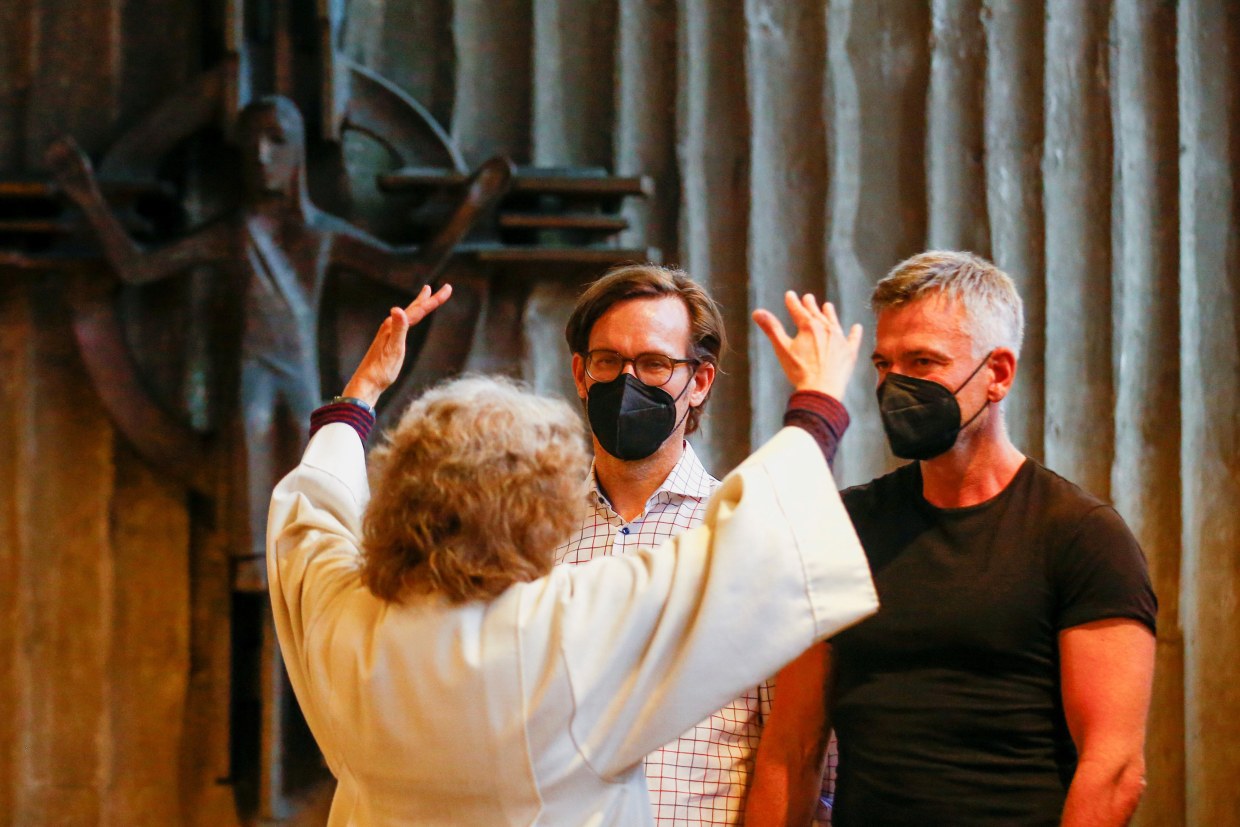German Protestant Bishops Asks Forgiveness From LGBT Community

One of Germany’s leading Protestant bishops has asked the country’s LGBT community for forgiveness for any pain and discrimination caused by his church.
On the eve of Berlin’s Pride Parade, Bishop Christian Stäblein told a service in the capital’s St Mary’s Church he was “appalled by the stigmatisation we have perpetrated” on LGBT congregation members, and its own ministers and staff.
The church had subjected LGBT people to abusive questioning and dismissed them from church employment, and congregations had withheld respect and recognition from members of the church living in same-sex relationships, said Dr Stäblein, bishop of the Berlin-Brandenburg (EKBO) state church, one of 20 in Germany’s Evangelical Church (EKD) federation.
The bishop denounced a centuries-old policy that demanded LGBT people in his church to live celibate lives and, until a decade ago, denied staff members in same-sex couples access to pastoral housing. This compounded rather than countered, he said, discrimination they faced in wider German society.
‘Pariahs’
“We excluded them and made them pariahs,” he said, and behind all this was a theology that denied LGBT people “their rightful place as children of God in the image of God”.
“We have to assume that many more people were harmed by these practices than we are aware of or can document,” the bishop said.
Dr Stäblein asked for forgiveness, “knowing that it is God’s alone to give, and that we bear responsibility as a community for these wrongs”.
His statement is the latest step by the Berlin church to open itself to the LGBT community – and examine its past.
The EKD began liberalising its position on homosexuality in the last 20 years. It introduced blessing services for same-sex and inter-sex couples in 2002 and introduced same-sex marriage in 2017 – a year before the German parliament.
Not all EKD churches are as liberal on LGBT matters: the more conservative Saxon church offers same-sex couples a private blessing but no full church marriage service. mprisoned
Last year Berlin’s Bishop Stäblein declared “null and void” the disrobing of a homosexual pastor who faced Nazi-era discrimination.

Pastor Friedrich Klein
How a church in Germany posthumously reinstated a gay clergyman
Imprisoned
Pastor Friedrich Klein was imprisoned for three years, stripped of his clergyman status, and drafted to serve on the eastern front near Leningrad. He went missing in 1944 and was declared dead in 1975.
Not to be outdone, Berlin’s St Canisius Catholic church offered a second Pride Mass on Friday evening. It held a blessing Mass for all couples in May, responding after a Vatican document restating that blessings for same-sex unions are impossible.
Klein was born in 1905 and went on to join the Nazi party in 1933. However, he later moved to Berlin and lent his support to the efforts of another clergyman, Johannes Schwartzkopf, to stamp out discrimination against Jewish people and other oppressed groups.
When Klein’s sexuality was discovered, he was convicted by the Nazi party and sent to military prison. In July 1944, he was released and forced to fight for the Nazis, where he was likely deployed the frontline.
It is thought that he probably died within days of his release.
Comments